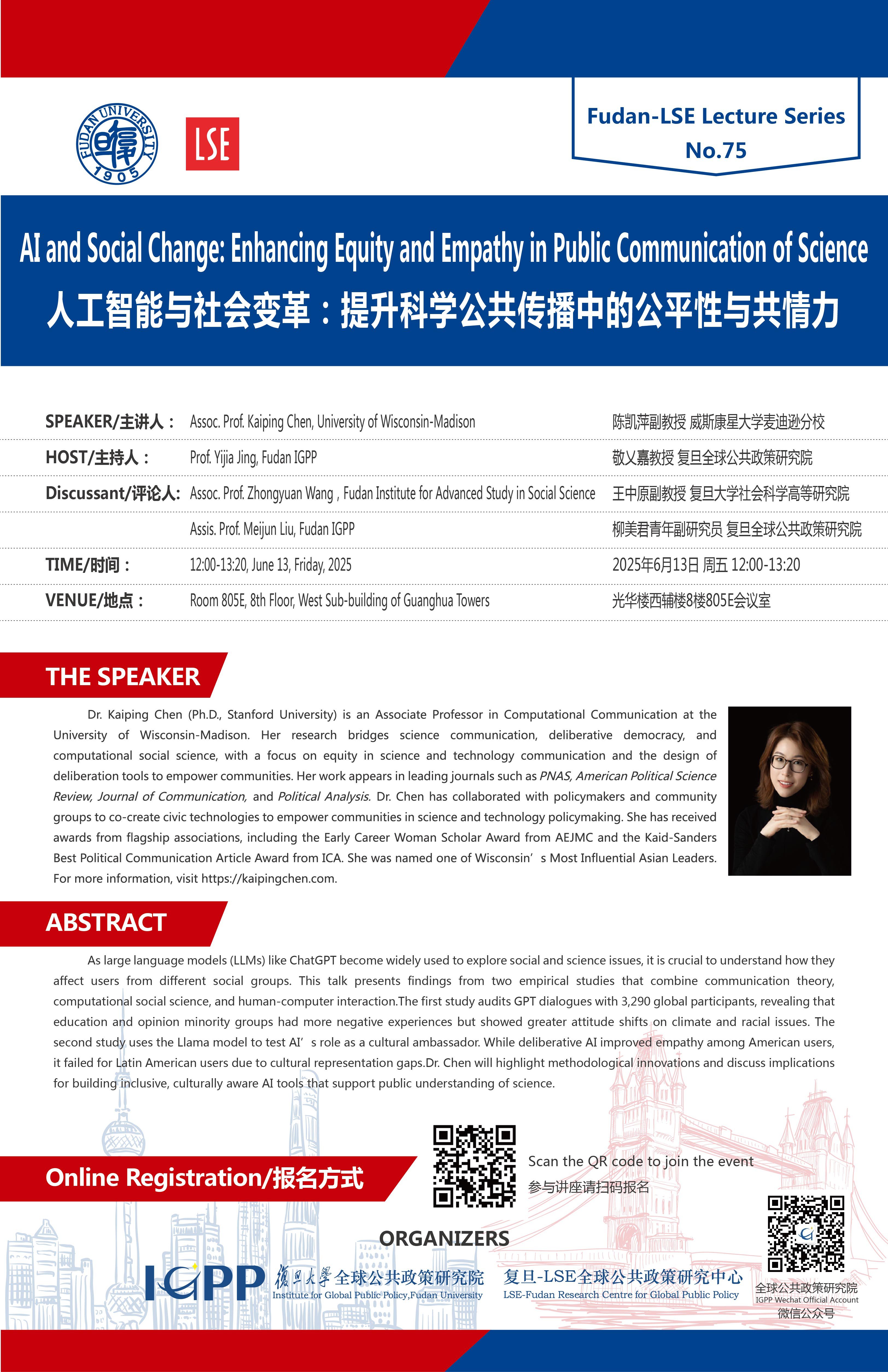
Fudan-LSE Lecture Series No.75
Title:
AI and Social Change: Enhancing Equity and Empathy in Public Communication of Science
Speaker:
Assoc. Prof. Kaiping Chen, University of Wisconsin-Madison
Host:
Prof. Yijia Jing, Fudan IGPP
Discussant:
Assoc. Prof. Zhongyuan Wang,Fudan Institute for Advanced Study in Social Science
Assis. Prof. Meijun Liu, Fudan IGPP
Time:
12:00-13:20, June 13, Friday, 2025
Venue:
Room 805E, 8th Floor, West Sub-building of Guanghua Towers
https://www.wjx.cn/vm/Pc5MIFG.aspx#

The Speaker:

Dr. Kaiping Chen (Ph.D., Stanford University) is an Associate Professor in Computational Communication at the University of Wisconsin-Madison. Her research bridges science communication, deliberative democracy, and computational social science, with a focus on equity in science and technology communication and the design of deliberation tools to empower communities. Her work appears in leading journals such as PNAS, American Political Science Review, Journal of Communication, and Political Analysis. Dr. Chen has collaborated with policymakers and community groups to co-create civic technologies to empower communities in science and technology policymaking. She has received awards from flagship associations, including the Early Career Woman Scholar Award from AEJMC and the Kaid-Sanders Best Political Communication Article Award from ICA. She was named one of Wisconsin’s Most Influential Asian Leaders. For more information, visit https://kaipingchen.com.
As large language models (LLMs) like ChatGPT become widely used to explore social and science issues, it is crucial to understand how they affect users from different social groups. This talk presents findings from two empirical studies that combine communication theory, computational social science, and human-computer interaction.The first study audits GPT dialogues with 3,290 global participants, revealing that education and opinion minority groups had more negative experiences but showed greater attitude shifts on climate and racial issues. The second study uses the Llama model to test AI’s role as a cultural ambassador. While deliberative AI improved empathy among American users, it failed for Latin American users due to cultural representation gaps.Dr. Chen will highlight methodological innovations and discuss implications for building inclusive, culturally aware AI tools that support public understanding of science.





